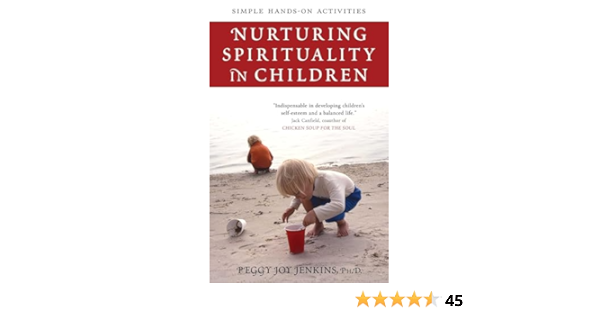
The Whole-Hearted Child: Nurturing Spirituality in Children
Introduction
In today's fast-paced world, raising a spiritually aware child can seem like a daunting task. However, the rewards of nurturing a child's spiritual development are immense. This article explores various ways to foster spirituality in children, ensuring they grow up to be whole-hearted and balanced individuals. Our focus will be on practical strategies, the importance of family and community, and the benefits of a spiritual upbringing.
What is Spirituality?
Spirituality is often defined as a sense of connection to something greater than oneself. For children, this can mean understanding their place in the world, developing a sense of wonder, and recognizing the interconnectedness of all life. It's important to distinguish spirituality from religion; while they can overlap, spirituality is a broader concept that includes a wide range of experiences and beliefs.
The Importance of Early Spiritual Development
Research has shown that children who are introduced to spirituality at an early age tend to develop better emotional health, resilience, and a sense of purpose. Early spiritual experiences can help children navigate life's challenges, build empathy, and foster a sense of peace and contentment.
Key Elements of Spirituality for Children
There are several key elements to consider when nurturing spirituality in children:
- Connection to Nature: Encourage children to spend time outdoors, appreciating the beauty and complexity of the natural world.
- Mindfulness: Teach children to be present in the moment and aware of their thoughts and feelings.
- Compassion: Foster empathy and kindness towards others.
- Gratitude: Help children develop a habit of being thankful for the small and big blessings in their lives.
Practical Strategies for Nurturing Spirituality
Here are some practical strategies to help parents and caregivers nurture spirituality in children:
1. Lead by Example
Children learn a lot from observing the adults in their lives. Demonstrate spirituality through your actions, whether it's through prayer, meditation, or acts of kindness. Share your spiritual practices with your children and involve them in age-appropriate ways.
2. Create a Spiritual Routine
Establishing a regular spiritual routine can provide children with a sense of stability and consistency. This could include daily meditation, gratitude journaling, or reading spiritual stories together.
3. Encourage Questions
Encourage children to ask questions about life, existence, and spirituality. Be open to their inquiries and provide thoughtful, age-appropriate answers. This helps children develop their own understanding and beliefs.
4. Foster a Sense of Community
Being part of a community can greatly enhance a child's spiritual development. This could be a religious community, a meditation group, or any gathering that promotes spiritual growth and connection.
Benefits of Nurturing Spirituality in Children
The benefits of nurturing spirituality in children are numerous:
- Improved Emotional Health: Spirituality can help children manage stress, anxiety, and depression.
- Enhanced Empathy and Compassion: Spirituality fosters a sense of empathy and a desire to help others.
- Stronger Sense of Purpose: Spirituality provides children with a sense of meaning and direction in life.
- Better Coping Skills: Spiritual practices can equip children with tools to handle life's challenges.
Case Studies: Spiritual Practices in Action
| Practice | Example | Benefits |
|---|---|---|
| Meditation | Daily family meditation sessions | Reduces stress, improves focus |
| Gratitude Journaling | Writing three things they are grateful for each night | Enhances positivity, reduces anxiety |
| Nature Walks | Weekly hikes in local parks | Improves mood, fosters appreciation for nature |
| Community Service | Volunteering at a local shelter | Builds empathy, strengthens community ties |
Conclusion
Nurturing spirituality in children is a rewarding journey that can have lifelong benefits. By incorporating practices such as mindfulness, gratitude, and compassion, and by providing a supportive community and a loving example, parents and caregivers can help children grow into whole-hearted, spiritually aware individuals. For more resources and guidance on raising spiritually aware children, visit our website and check out our blog.
Additional Resources
For further reading, consider the following books and articles:
- The Whole-Brain Child by Daniel J. Siegel and Tina Payne Bryson
- Raising Spiritual Children in a Secular World by Terence Grant
- Spiritual Parenting: An Awakening for Today’s Families by Rabbi Dr. Karyn Kedar



